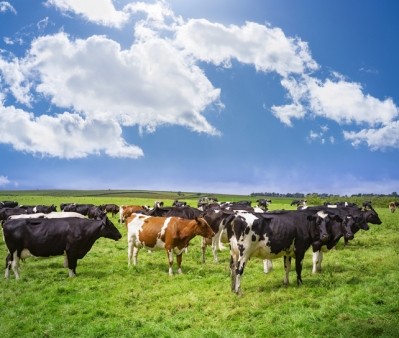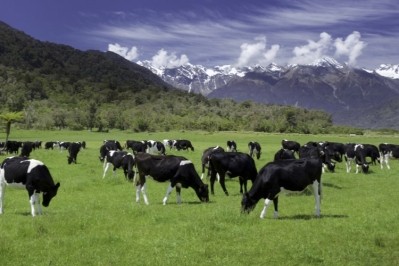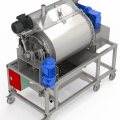Denmark introduces world's first carbon tax on agriculture

From 2030 farmers will have to pay 120 Danish krone (€16) per ton of emitted CO2 equivalent, rising to 300 krone (€40) from 2035 onwards.
The agreement, reached on Monday, is set to be formally approved by the Danish parliament in August.
Agriculture is forecast to account for 46% of emissions in Denmark by 2030. Commentators say the carbon tax will cut 1.8 million tons of that in 2030, its first year of operation, enabling Denmark to meet its goal of reducing 70% of its total emissions by that year.
Earlier this month, New Zealand scrapped plans for a similar tax aimed at tackling emissions from livestock.
Key elements of the tax
The main components of Denmark's agriculture emissions tax proposal include:
CO2e tax on livestock emissions: A tax of Danish krone (DKK) 300 per ton of CO2e will be introduced in 2030, rising to DKK 750 per ton in 2035 with a basic deduction of 60%, making the effective tax DKK 120 (€16) per ton in 2030 and DKK 300 (€40) per ton in 2035.
Emission reductions: Targeting a reduction of 1.8 million tons of CO2e by 2030, with potential reductions of up to 2.6 million tons.
Return of proceeds to industry: Proceeds from the tax will be returned as a transition support fund to aid the industry's green transition, with a review of this handling set for 2032.
Forest establishment: Creation of 250,000 new hectares of forest, enhancing Denmark’s green landscape.
Protected nature: Aiming for at least 20% protected nature, including the establishment of 80,000 hectares of private untouched forest and 20,000 hectares of state forest.
Biochar subsidy scheme: A scheme worth over DKK 10 billion up to 2045 for biochar storage produced by pyrolysis.
Nitrogen effort paradigm shift: Focusing on land conversion to meet EU Water Framework Directive goals.
Slaughterhouse fees and labor upskilling: Lifting fees for slaughterhouses by DKK 45 million (€6m) annually from 2029 and allocating DKK 100 million (€13.3m) for labor upskilling over 2027-2030.
Reaction
Maria Reumert Gjerding, president of the Danish Society for Nature Conservation, hailed the agreement as "a historic compromise that sets a completely new direction for land use.”
The agreement will ensure significantly more forest, large wetlands, and much more protected nature in Denmark, she said. “Despite major disagreements, we have managed to reach a compromise on a carbon tax that paves the way for a transformed food industry - also beyond 2030."
Martin Lines, UK arable farmer and CEO of the Nature Friendly Farming Network, emphasized the role of agriculture in reducing emissions: "Agriculture can and must play a significant role in reducing its own emissions and has the potential to sequester carbon for others. A carbon tax should be implemented across all industries, with agriculture taking an active part not only in emission reduction but also in leveraging the opportunities to be rewarded for carbon sequestration."
Mark Howden, director of the Institute for Climate, Energy and Disaster Solutions at the Australian National University, and a member of the Expert Panel on Livestock Methane highlighted the global significance: "Governments across the globe could take a close look at Denmark’s landmark agriculture emissions tax. The world can no longer afford to ignore the third of global emissions produced by the agri-food sector. This policy package looks like it can push down on greenhouse gas emissions efficiently while generating benefits for farmers and biodiversity. Recirculating the proceeds of the tax into a transition support fund for the farm sector, if handled strategically, could generate a new wave of innovation and new opportunities."
Nicolai Wammen, finance minister of Denmark, said the move was “truly historic” for Denmark, for the climate, for nature, and for Danish agriculture.
“We are investing in the future of our agricultural sector, initiating a transition with shared ambitions and goals - laying the tracks to what our country will look like in five, 10, and 20 years from now. We know that a CO2 tax model aligned across all sectors gives us the lowest societal costs in total. What we have now done from industry sectors to agriculture shows us that an ambitious green transition is possible."









